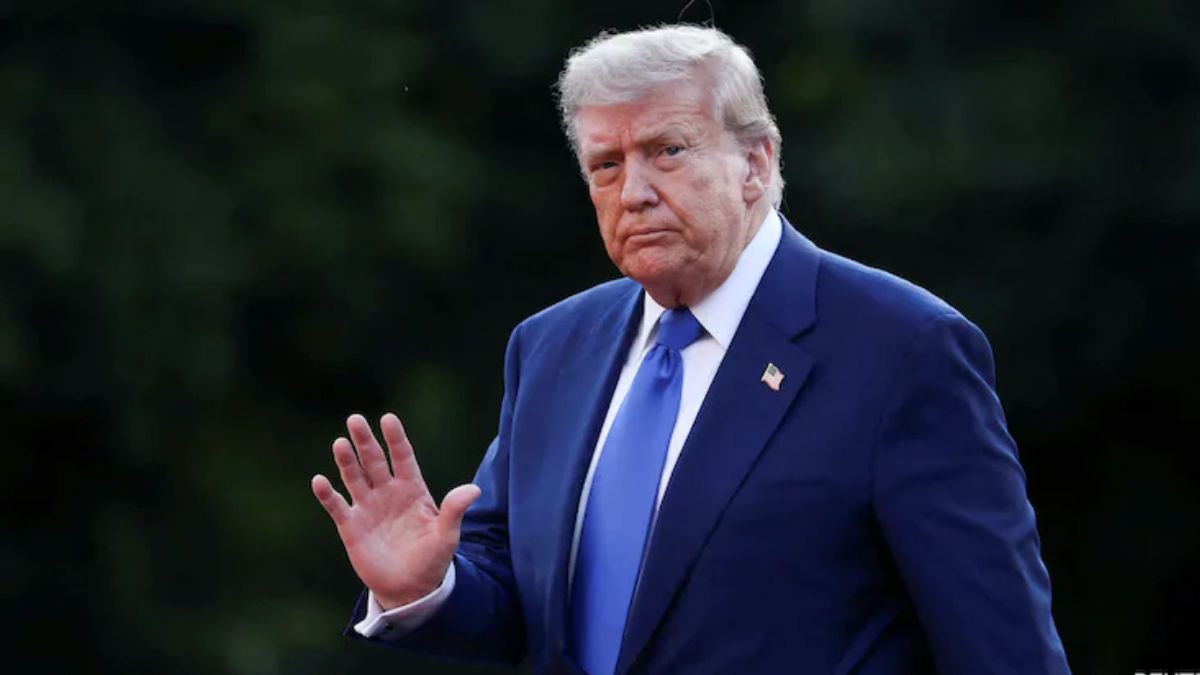US President Donald Trump may have convinced his far-right base that foreign countries pay for tariffs, but the fact remains that tariffs are borne by US companies and public — and it is finally reflecting in data.
Tariffs are taxes that importers in the United States pay to the US government on goods bought from countries facing tariffs. For example, if there is a 35 per cent tariff on Chinese goods, importers in the United States buying goods from China would pay 35 per cent of the goods’ value to the US government in tax.
American businesses, including some of the most recognisable companies like General Motors (GM), have reported tariff-induced losses. The reason is that they are hesitant to pass on the increased costs of tariffs to costumers out of fears of a fall in sales.
ALSO READ: Even as Trump wages tariff wars, 75% Americans don't know what it means
Economists, however, have said that it is only a matter of time that businesses pass most of these increased costs to customers.
Americans are paying for tariffs — despite whatever Trump says
In a research note, Deutsche Bank concluded that Americans are definitely paying for tariffs.
If foreigners were paying for tariffs, we would expect to see a sharp reduction in the price of imported goods as they absorbed it into their own margins, but the data show only mild price reductions, mainly from Canada and, to a lesser extent, the United Kingdom, the bank noted.
The analysis concluded three things: Firstly, exporters abroad “are not yet feeling much pain from the tariffs”, which could strengthen their bargaining power ahead of the August 1 trade deadline. Secondly, there may be “more pressure on US consumer prices in the pipeline”. Thirdly, as the economic cost is falling more heavily on American businesses and people, the situation adds “an added dollar negative” to the broader macroeconomic outlook.
Impact Shorts
More ShortsALSO READ — Trump’s tariffs & mass-firing: Economists fear 'stagflation' is on the horizon
Trump’s reasons behind tariffs are many — and all of them are either false or misplaced.
Firstly, Trump has said he would make countries pay with tariffs for purported unfair trade practices. As explained above, it is a false claim as importers pay tariffs, not the other countries.
Secondary, Trump has said tariffs will disincentivise imports and fuel domestic manufacturing.
This is a misplaced idea as modern-day manufacturing relies on spares and machinery from across the world and a tariff war makes sourcing difficult. For example, China has a near-monopoly on the world’s rare earth supplies, which are used in nearly everything today from household electronics to cars and fighter planes. After Trump slapped tariffs, China leveraged the near-monopoly and forced Trump to blink.
US businesses take a hit
The GM on Tuesday reported a loss of 35 per cent in the second quarter, including a $1.1 billion hit from Trump’s tariffs.
In the first half of the year, Jeep- and Fiat-owner Stellantis projected a $351.1 million tariff-induced loss. For the entire year, the projected loss is $1.17-1.76 billion.
Raytheon Technologies has also lowered the targets. Tech giants like Apple, Nvidia, Tesla, Google-parent Alphabet, Amazon, and Meta have also seen decline in value from market losses.
Moreover, Trump is way off the target in tariffs. While he set out to get $6 trillion in revenue from tariffs, he has so far only crossed the $100-billion mark.


)

)
)
)
)
)
)
)
)



